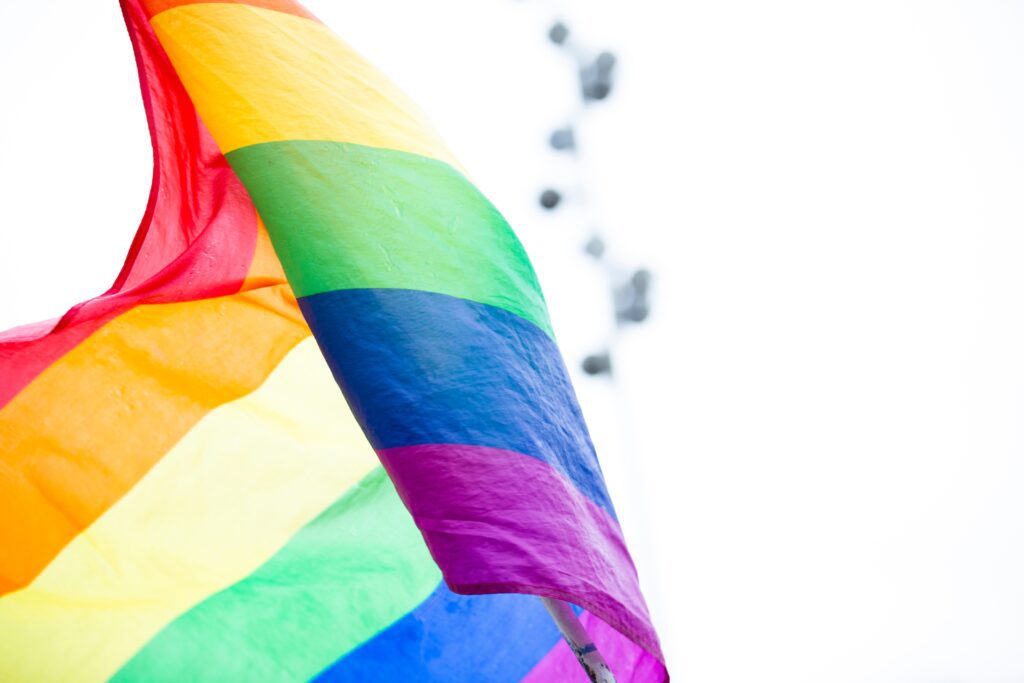
Mental Health in the LGBTQ+ Community by Morgan Gray, MA, LCSW
Mental Health in the LGBTQ+ Community by Morgan Gray, MA, LCSW
Most are familiar with “Pride Month,” the celebration of LGBTQ+ communities marked by parades and festivals each June. The origins and reasons for continued celebration of Pride, however, are discussed less often. The Pride Movement began in the 1960s as a protest against discriminatory laws and negative societal treatment targeting members of the LGBTQ+ community. Continued celebration of LGBTQ+ identities offers individuals a space to openly express themselves, feel a sense of pride, and find community.
Though much progress has been made in the last 60 years, those identifying as LGBTQ+ still face significant discrimination, stigma, and rejection from family and society, which impacts mental health. Research indicates that LGBTQ+ individuals are at higher risk for experiencing depression and anxiety disorders. Lesbian, gay, and bisexual adults are twice as likely as their heterosexual peers to experience a mental health condition. Transgender adults experience mental health conditions at rate nearly four times that of cisgender individuals.
It’s important to note that identifying as LGBTQ+ doesn’t cause mental health conditions and these identities don’t “need to be fixed.” While the exact reasons for the mental heath disparities experienced by the community are unknown, research shows correlation between increased stress surrounding discrimination, stigma, difficulty coming out, familial rejection, and social isolation that many LGBTQ+ individuals experience with negative mental health outcomes.
What can LGBTQ+ individuals do to improve mental health outcomes?
In addition to working with a therapist who specializes in working with LGBTQ+ identities, finding a space to safely embrace your LGBTQ+ identity can have a positive impact on your mental health. Finding community takes various forms. What’s important is finding a space where you can more fully express your authentic self. Here are a few ways that you can work to build community:
- Spend time or build relationships with people who are openly accepting of LGBTQ+ individuals.
- Participate in local or online LGBTQ+ support groups
- Visit LGBTQ+ owned and LGBTQ+ friendly businesses
- Attend and participate in LGBTQ+ community events
- Engage with LGBTQ+ organizations (arts organizations, sports leagues, book clubs, etc.)
- Advocate for LGBTQ+ rights
- Contact your representatives to support affirming legislation
- Participate in days of action planned by LGBTQ+ organizations
- Educate your community about on LGBTQ+ issues
- Participate in an affirming place of prayer/worship
Finding community and a space where you feel free to be your authentic self will help build confidence and resilience, as well as foster a sense of belonging.
What can allies do to help?
As an ally you can play a vital role in improving the mental health outcomes of the LGBTQ+ people in your life. Studies have shown that societal acceptance is a protective factor that can improve mental health outcomes for LGBTQ+ individuals. Here are a few ways in which allies can actively work to improve the lives of members of the LGBTQ+ community:
- Listen, learn, and educate yourself.
- Don’t assume everyone is straight and cisgender; someone could be looking for support in their coming-out process.
- Affirm others’ identities by using chosen names and pronouns. If you’re unsure of someone’s pronouns, just ask them respectfully.
- Anti-LGBTQ+ jokes and comments are harmful. When you hear them, let others know you find these comments offensive.
- Confront your own prejudices and unconscious bias. Being an ally means being open to the idea of being wrong sometimes and being willing to work on it.
Everyone plays a role in creating an environment of acceptance and respect. Your open and consistent support will hopefully lead as an example to others.
Sources:
Medley, G., Lipari, R.N., Bose, J., Cribb, D.S., Kroutil, L.A., McHenry, G. Sexual orientation and estimates of adult substance use and mental Health: Results from the 2015 national survey on drug use and health (2016) https://www.samhsa.gov/data/sites/default/files/NSDUH-SexualOrientation-2015/NSDUH-SexualOrientation-2015/NSDUH-SexualOrientation-2015.htm
Russell, S.T. and Fish, J.N. (2016) Mental Health in Lesbian, Gay Bisexual, and Transgender Youth. Annual Review of Clinical Psychology, 12, 465-48 https://www.ncbi.nlm.nih.gov/pmc/articles/PMC4887282/
The Trevor Project (2021) Facts about LGBTQ Suicide. https://www.thetrevorproject.org/resources/article/facts-about-lgbtq-youth-suicide/
Wanta, J.W., Niforatos, J.D., Durbak, E., Viguera, A., and Altinay, M. (2019) Mental Health Diagnoses Among Transgender Patients in the Clinical Setting: An All-Payer Electronic Health Record Study. Transgender Health, 4 (1), https://www.liebertpub.com/doi/pdf/10.1089/trgh.2019.0029
